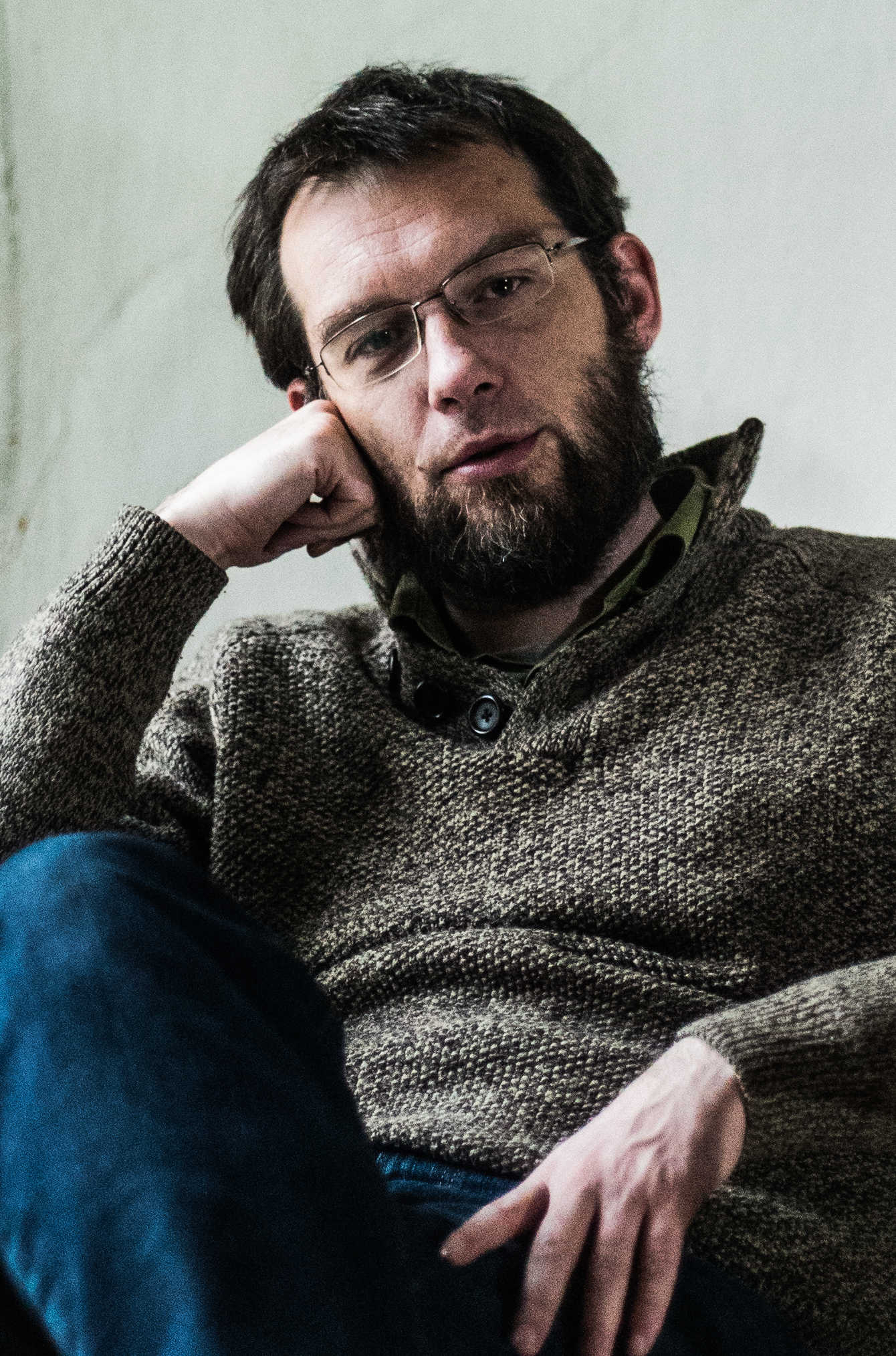
Aare Pilv
Aare Pilv (b. 15 April 1976, Viljandi) is an Estonian poet, literary scholar, translator and critic. He emerged in the late nineteen-nineties as one of the most remarkable and original of his generation of poets.
Pilv matriculated from J. Köler Secondary School No 4 in Viljandi in 1994 and defended his baccalaureat (1999) and master’s degree (2002) in the field of Estonian literature at the University of Tartu. 1994-2018 he lived in Tartu, since 2019 in Tallinn. He works as a researcher at the Under and Tuglas Literature Centre of the Estonian Academy of Sciences. He belongs to the Erakkond (‘The Group of Hermits’) poetry group, the Estonian Writers’ Union and the student society Veljesto.
Pilv’s first collections as a poet in the nineteen-nineties, Päike ehk päike (‘Sun or Sun’, 1998) and Tema nimi on kohus (‘Their Name is Duty’, 1999), stretched the limits of linguistic expression and made profuse use of textual play. Since his 2002 collection Nägemist (‘Goodbye’), many of Pilv’s texts have concentrated on childhood memories, Proustian memory images, sensual environmental experiences and meaningful moments. In these, Pilv aims at extreme linguistic precision and nuance, which make his texts unconventional, so that, as before, they can be seen as experimental poetry or literature. Some of Pilv’s texts can be classified as prose.
As a literary critic and scholar Pilv has dealt, among other topics, with auto-metatextuality, with Madis Kõiv (compiling a voluminous collection of articles by him for the series ‘History of Estonian Thought’) and Estonian experimental and avant-garde literature. He has also been a productive theatre critic.
Aare Pilv has translated Russian futurist and avant-garde literature into Estonian, including Alexander Vvedensky, Daniil Kharms, Aleksey Gastev and Lev Rubinstein, and contemporary Russian-Estonian authors like Igor Kotjuh and P. I. Filimonov. He has also translated a poetry collection by Jaan Kaplinski originally written in Russian and (with Kristi Oidekivi) a seto-dialect poetry collection by Kauksi Ülle.
Aare Pilv has also been an influencial social and political activist, emphasizing in his articles and in social media the need for tolerance and ethics. Pilv’s social activity is characterized by a striving for discussions and decision-making that are based on balanced, thorough and sovereign analysis, even on politically explosive topics. He does not belong to any party.
Pilv’s poetry collection Kui vihm saab läbi (‘When the Rain is Over’, 2017) has received the Cultural Endowment’s Literature Foundation Annual Prize, the Ivar Ivask Memorial Prize, the Tartu Culture Bearer prize and Gustav Suits Poetry Prize. His travelogue Ramadaan (2010) won the travel book award by the travel agency Go Travel and the travel magazine Go. Pilv has also won several awards for his reviews and articles on literature and theatre.
S. V. (Translated by C. M.)
Books in Estonian
Poems (includes occasional short prose)
Üle: tekste 1993-1995. Kujundus: Rain Rohtla. Viljandi: A. Pilv, 1996, 45 lk.
Päike ehk päike: vanaaegset luulet 1993-1997. Kujundus, Andro Küün, Pildid: Elin Sütiste. Tallinn: Erakkond, 1998, 92 lk.
Tema nimi on kohus. Kujundus: Andro Küün. Tallinn: Erakkond, 1999, 95 lk.
Nägemist. Kujundanud Andro Küün. Tallinn: Tuum, 2002, 87 lk.
Näoline. Kujundanud Andro Küün. Tallinn: Tuum, 2007, 110 lk.
Kui vihm saab läbi: mälestusi ühest ajastust(2007-2015). Kujundanud Aare Pilv. Tallinn: Tuum, 2017, 130 lk.
Prose
Ramadaan: Vahtsõliinah, Lillekülas, in Matiano, a Roma. Kujundanud Andro Küün. Tallinn: Tuum, 2010, 440 lk. [Reisikiri.]



